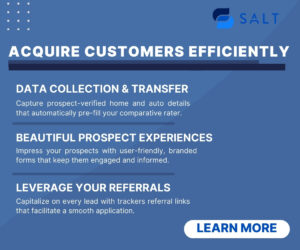In the fast-paced and competitive insurance industry, staying ahead of the curve is crucial for success.
Insurance agencies must constantly analyze and interpret vast amounts of data to make informed decisions and provide the best service possible to their clients. This is where business intelligence (BI) and data analytics software are pivotal.
Business intelligence and data analytics software provide insurance agencies with the tools and capabilities to gather, analyze, and visualize complex data to gain valuable insights. These insights can help agencies identify growth opportunities, streamline their operations, and ultimately maximize profitability.
Here are a few ways in which insurance agencies can leverage BI and data analytics software to drive profitability.
1. Enhancing Customer Segmentation and Targeting
By analyzing customer data, agencies can segment their customer base into different groups based on various attributes such as demographics, behavior, or purchasing patterns. This information can be used to personalize marketing messages and offers, resulting in higher conversion rates and stronger customer engagement.
2. Optimizing Pricing and Underwriting
BI and data analytics software allows insurance agencies to assess risk more accurately by analyzing historical data, market trends, and other external factors. This enables agencies to price their policies more competitively while still ensuring profitability. By using predictive models, insurance agencies can also identify potential risks and make informed decisions about underwriting policies, reducing the likelihood of costly claims.
3. Improving Claims Management
Claims processing is a critical aspect of any insurance agency’s operations. By utilizing BI and data analytics software, agencies can effectively analyze claims data to identify patterns and early warning signs of potentially fraudulent activities. Furthermore, data-driven insights can help agencies streamline the claims process, reducing the time taken for claims settlement and improving customer satisfaction.
4. Enhancing Operational Efficiency
BI and data analytics software provide agencies with real-time insights into their operational performance. By monitoring key performance indicators (KPIs) such as policy renewals, customer acquisition costs, and agent productivity, agencies can identify areas of improvement and take proactive measures to optimize efficiency. This can include automating repetitive tasks, streamlining workflows, or reallocating resources to areas with higher potential for profitability.
5. Forecasting and Planning
BI and data analytics software enable insurance agencies to leverage historical data, market trends, and predictive modeling to forecast future outcomes. By using these forecasting capabilities, agencies can anticipate changes in the market, identify new opportunities, and make data-driven decisions regarding resource allocation and product development. This helps insurance agencies stay agile and adapt quickly to evolving market dynamics.
6. Increasing Cross-Selling and Upselling Opportunities
By leveraging customer data and analytics, insurance agencies can identify cross-selling and upselling opportunities. For example, based on a customer’s buying history, agencies can recommend additional coverage options that align with their needs. This not only increases customer satisfaction but also maximizes revenue generation by tapping into the existing customer base.
In conclusion, business intelligence and data analytics software have become indispensable tools for insurance agencies looking to maximize profitability. Embracing BI and data analytics software is no longer a luxury but a necessity for insurance agencies aiming to stay competitive and thrive in today’s data-driven marketplace.














































